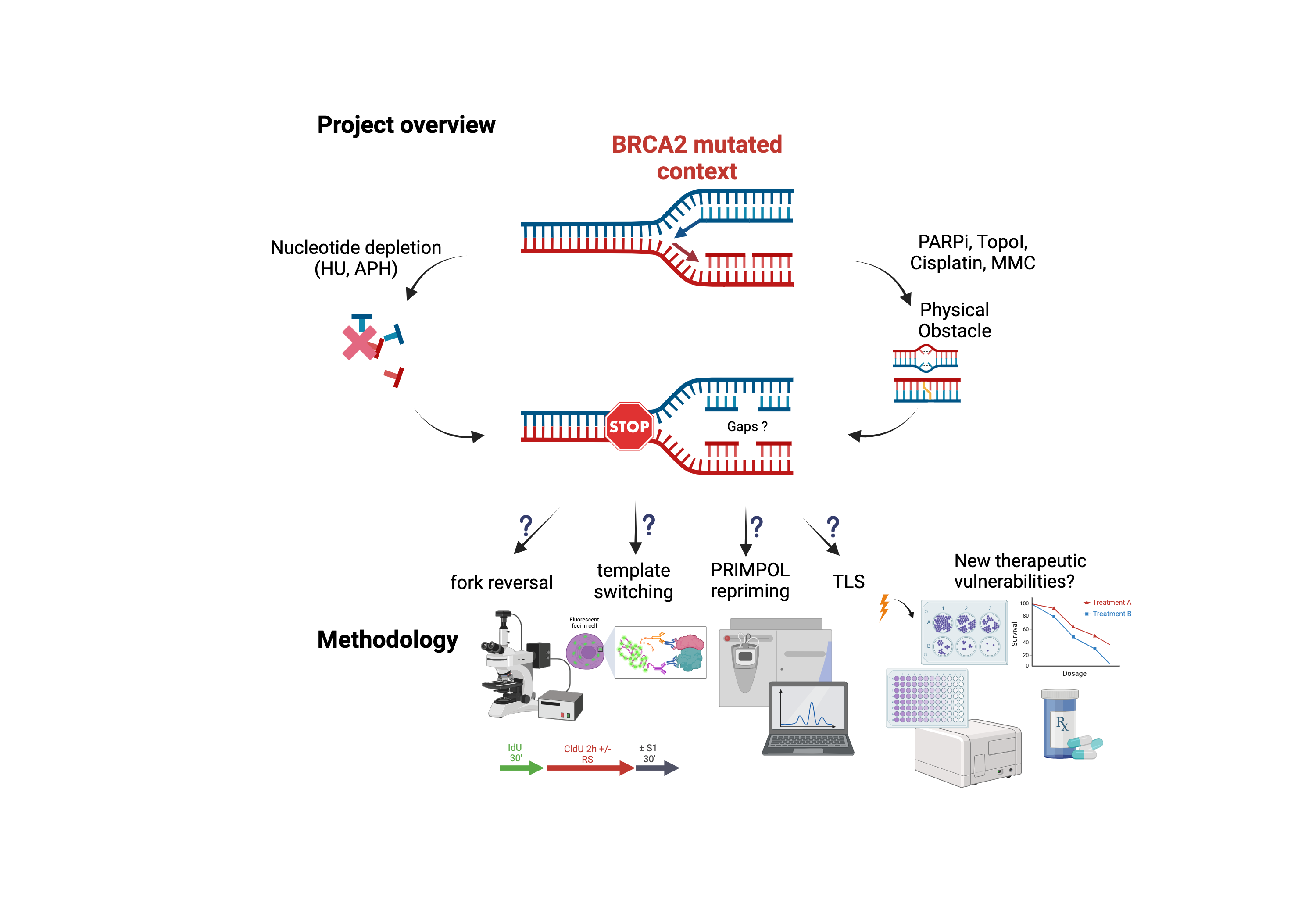
- Tipo de expresión:
- Doctorado: Propuesta de dirección de tesis doctoral/temática para solicitar ayuda predoctoral ("Hosting Offer o EoI")
- Ámbito:
- integridad del genoma, cancer
- Área:
- Vida
- Modalidad:
- Ayudas para contratos predoctorales para la formación de doctores (antiguas FPI)
- Referencia:
- PIF2024
- Centro o Instituto:
- CENTRO DE BIOLOGIA MOLECULAR SEVERO OCHOA
- Investigador:
- AURA CARREIRA MORENO
- Palabras clave:
-
- BRCA2, replicative stress, homologous recombination, ssDNA gaps, therapeutic vulnerabilities, variants of unknown clinical significance
- Documentos anexos:
- 665720.pdf
PIF2024 - Mechanisms of replication stress-induced ssDNA gaps repair and implications in chemotherapy resistance (PID2023-150953NB-I00)
Chronic replication stress is a prominent feature of cancer cells. Interestingly, this feature provides a therapeutic vulnerability to treat tumors. This entails understanding in detail the different replication stress tolerance (DDT) mechanisms deployed by the cell under different conditions.
Chronic replication stress is a prominent feature of cancer cells. Interestingly, this feature provides a therapeutic vulnerability to treat tumors. This entails understanding in detail the different replication stress tolerance (DDT) mechanisms deployed by the cell under different conditions.
Based on our recent publication (Vugic et al 2023), we hypothesize that different types of lesions can give rise to different types of DDT depending also on the BRCA2 mutation context. Thus, we want to dissect the different DNA damage tolerance (DDT) pathways that take place depending on whether the lesion is a blocking lesion (such as those generated by PARP inhibitors, MMC or topoisomerase inhibitors) versus the DDT that act when there is a limited pool of nucleotides (as HU or aphidicolin treatment). To do this, we will take advantage of the cell lines expressing separation of function variants already generated in the lab that confer specific sensitivity to certain chemotherapeutic agents and we will use the TurboID labeling method and proteomics as a proxy to identify factors associated with BRCA2 in each condition of replicative stress.
Additional information
Contact with this unit